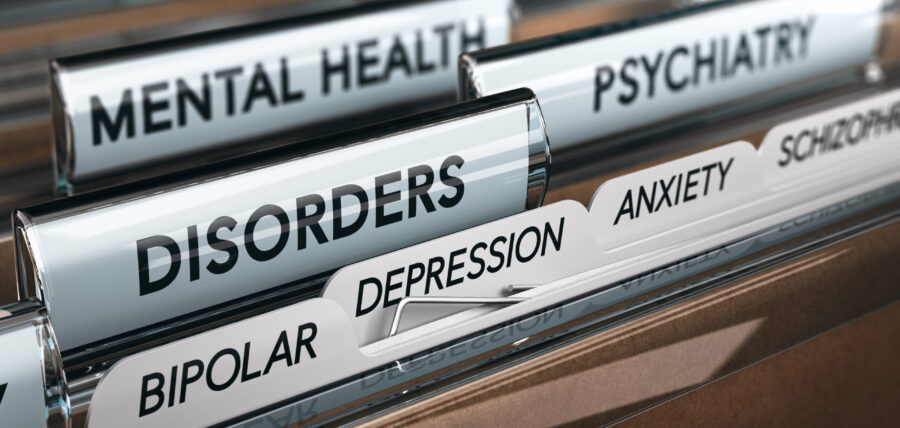World Bipolar Day: Everything You Need To Know About The Mental Health Condition

World Bipolar Day aims to raise awareness around the conversation of bipolar disorder. “Bipolar” is a word often used loosely amongst friends in reference to those who are “moody”. But just how can you differentiate between mood swings, and the need to seek professional support? Let’s find out.
What Is Bipolar Disorder?
Bipolar disorder (once clinically referred to as manic depression) is a mental health condition that causes extreme mood changes along with energy and activity levels, these mood changes can change quickly and is referred to as rapid cycling. These can cause the person to struggle with daily activities. The most common types of bipolar disorder include:
- Bipolar I disorder
- Bipolar II disorder
- Cyclothymic disorder
Who is Mostly Affected by Bipolar Disorder?
Contrary to misconceptions, bipolar disorder can affect both men and women alike. Neither sex is likely to be more affected than the other, however, rapid cycling is more likely to occur in women.
How is Bipolar Disorder Diagnosed?
In order to make a bipolar disorder diagnosis, the individual would need to be referred to a psychiatrist, usually by their GP. During the diagnostic process, the psychiatrist will ask a series of questions about how you’re feeling, your symptoms and how long you have been experiencing them for.It is also particularly important for the psychiatrist to know your medical history, family history and whether any family members have the disorder.
Depending on the symptoms you might be asked to do a test to check your thyroid and to rule out any physical concerns.
If you do have bipolar disorder you will have regular appointments with your GP and psychiatrist to work together on the best treatment plan for you.

Why is Bipolar Disorder Difficult to Diagnose?
Approximately half the people with bipolar disorder see three different mental health professionals before getting a correct diagnosis. The difficulty that comes with diagnosing bipolar disorder is that some of the symptoms mimic other health conditions.
Depressive episodes can often be diagnosed as depression, however, this does not involve mood swings and does not show signs of mania. This can become additionally complex when individuals with bipolar have manic episodes during their depression, referred to as a “mixed episode”. Depression is commonly treated with talking therapy, and antidepressant drugs which can bring on mania, so it is very important individuals are diagnosed correctly.
Anxiety disorders can also be mistaken for bipolar disorders, as they too mimic similar symptoms. Like depression, anxiety is treated in the same way, through talking therapy and antidepressants or antianxiety drugs.
Bipolar disorders can also be misdiagnosed with more severe mental health illnesses such as schizophrenia. Schizophrenia often presents itself with hallucinations and psychosis which happens in the early stages of bipolar disorder.
ADHD (attention deficit hyperactivity disorder) is far more common in children than bipolar disorder, the outbursts of a child can often be diagnosed as ADHD but they may be the start of bipolar disorder. Common treatments of ADHD are often prescription stimulants that can exacerbate mania in those with bipolar disorder.
Bipolar disorders can also be mistaken in those with drug or alcohol addiction. If manic episodes are frequently occurring without the use of substances it could well be that the individual is suffering with bipolar disorder.
Therefore, appropriate assessment with a psychiatrist is key, they will be able to distinguish between these other diagnoses and provide a correct one.

Can Someone Live a “Normal” Life With Bipolar Disorder?
Yes! Whilst the condition is lifelong, individuals with bipolar disorder can have a family and work, and live a normal life if the illness is treated properly. Whilst there is no cure for bipolar disorder, fortunately, due to the range of medications available for those living with bipolar disorder, the outlook for most is that of a positive one. Symptoms are manageable and it is down to the individual to work with their psychiatrist and their loved ones to best support themselves.
How To Support Someone With Bipolar Disorder
Educate Yourself
The more you know about bipolar disorder the stronger position you’re in to be able to help someone who has the illness. It is particularly important a loved one understands someone’s symptoms as well as the warning signs of a manic or depressive episode and how to prepare for them.
Lend an Ear
When we’re struggling, we aren’t always looking for someone to “fix” us, we just want to be heard. Don’t feel like you always need to provide answers, instead offer acceptance. Understanding can go a long way for someone dealing with a mental health condition. Stay calm during conversations, be an active listener and avoid topics that you know might be triggering.
Create a Support Plan
When someone with bipolar disorder is in the throes of a manic episode they might not be able to see how this looks externally which can be destructive for them. During a manic episode, offer support with managing their finances, or other unhealthy behaviours. Often, advice may not be taken lightly because they feel good and don’t believe they need it, so conflict is to be expected.
Similarly, during a depressive episode be a source of support, encourage them to do small activities, and stay optimistic for them.
Monitor Extreme Fluctuations
Due to the changes in mood, activity and energy levels, your loved one may seem like they are trying to take on a new identity, for example suddenly they are really into fitness. This can be a warning sign of an individual in a manic episode, and can show up physically (trying to look different) or by changing friend groups entirely. Risk-taking behaviours can be damaging during a manic episode such as substance abuse or engaging in unhealthy activities.
During depressive episodes, be mindful of suicide and self-harm. Frequently check in on them or if you are living together, give them the space they need but let them know you’re there if they need you. If you are particularly concerned for a loved one’s safety or yours, we recommend calling 111 or taking them to hospital.

Look After Yourself Too
Caring for someone with a mental illness can mean we sometimes neglect ourselves. However it is important you look after your emotional, mental and physical needs too. Whilst you are ensuring your loved one is being cared for, ensure you are getting enough sleep, exercising regularly and eating well too.
What It’s Like to Live With Bipolar Disorder From Those Living With Bipolar Disorder
Here we share some personal anecdotes taken from the book Bring Me to Light on what it is like to live with bipolar disorder from those living with it.
It Is Not My Fault
“I was embarrassed to talk to my psychiatrist about how I was feeling. Even the thought of going outside the house paralysed me with fear, in case I saw another person. This was social anxiety at its height, and because it wasn’t rational, I felt that it was my fault, that I myself had created the thought patterns that were making me afraid of everything. In time, I would learn that it wasn’t my fault, that this fear was a result of past trauma, being judged for my bipolar disorder, and feeling out of control at a young age. But that realisation would come later”. p90 Bring Me to Light
I Looked For Distractions
“I prayed for these new medicines to be some kind of miracle cure. I hated living with the mood swings and unpredictability that my bipolar disorder caused. All I wanted to do was cry and sleep. I would try to distract myself by imagining myself as a character on my favourite reality TV how, Made in Chelsea. Those people didn’t seem to have problems holding down jobs, looking good (oh for the long, swishy hair!) or finding relationships. But I did, and I felt like a misfit”. p97 Bring Me to Light
Bipolar Disorder Does Not Define Me
“I will have this condition for the rest of my life. I know how best to manage it, but there are still hard times. Either way, I will continue explaining it to people who ask, so that people can understand that you can live a full and fulfilling life with this illness – and so that stigma falls. Having bipolar disorder is not shameful”. p158 Bring Me to Light
Takeaways
Bipolar disorders are a serious mental health condition that do require treatment and the correct interventions. However with consistent therapy, medication and a supportive network, individuals living with the illness can live a productive life.
Each year, World Bipolar Day aims to raise awareness around the condition to reduce misconceptions, disseminate information and open up space for those living with the illness.







